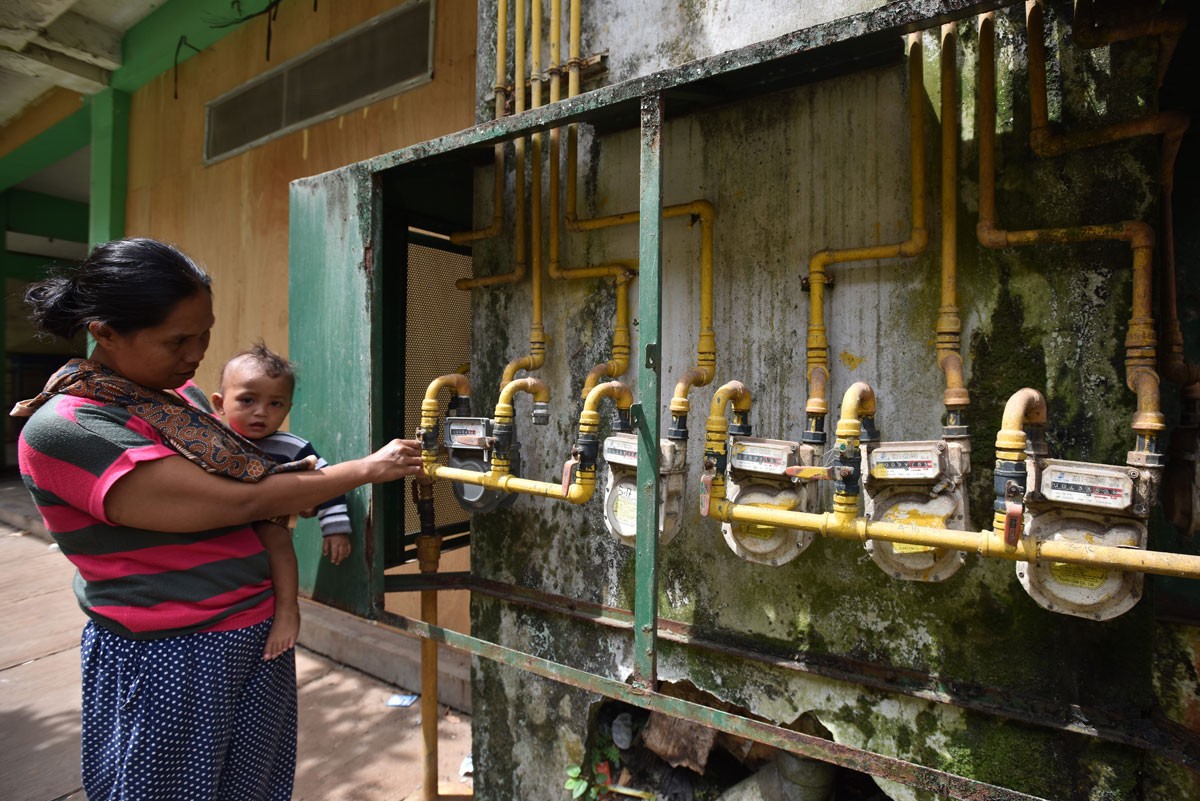Popular Reads
Top Results
Can't find what you're looking for?
View all search resultsPopular Reads
Top Results
Can't find what you're looking for?
View all search resultsGovernment issues regulation on household gas networks
The government has issued a regulation over gas networks for households to reduce the consumption of liquefied petroleum gas distributed through canisters, which still meet more than half of the national demand.
Change text size
Gift Premium Articles
to Anyone
T
he government has issued a regulation over gas networks (Jargas) for households to reduce the consumption of liquefied petroleum gas (LPG) distributed through canisters, which still meet more than half of the national demand.
Presidential Regulation (Perpres) No. 6/2019 on supply and distribution of natural gas to households and small users took effect on Jan. 28 and covers all aspects of the distribution of gas to households, from gas prices to the development of projects.
In conjunction, the Energy and Mineral Resources Ministry issued Ministerial Decree No. 11 K/10/EM/2019, which among other things rules that state energy holding company Pertamina is to be the contractor of the Jargas projects.
Article 19 of the decree requires Pertamina to determine the area of the projects, the recipients of the program, the natural gas allocations and the price of gas paid to sources.
Previously, the Energy and Mineral Resources Ministry had said the funds for the gas networks would come out of the state budget.
“Each year, starting from 2019, we aim to connect 200,000 homes to the networks, meaning that by 2023 we will have 1 million more houses with gas connections,” the ministry's oil and gas director general, Djoko Siswanto, said in November 2018.
If the program is implemented smoothly, the Energy and Mineral Resources Ministry said, the government would save up to 50 percent of the state budget spent on household gas, although the program would not be able to cover all customers across the country because the networks must be close to gas fields. (bbn)










